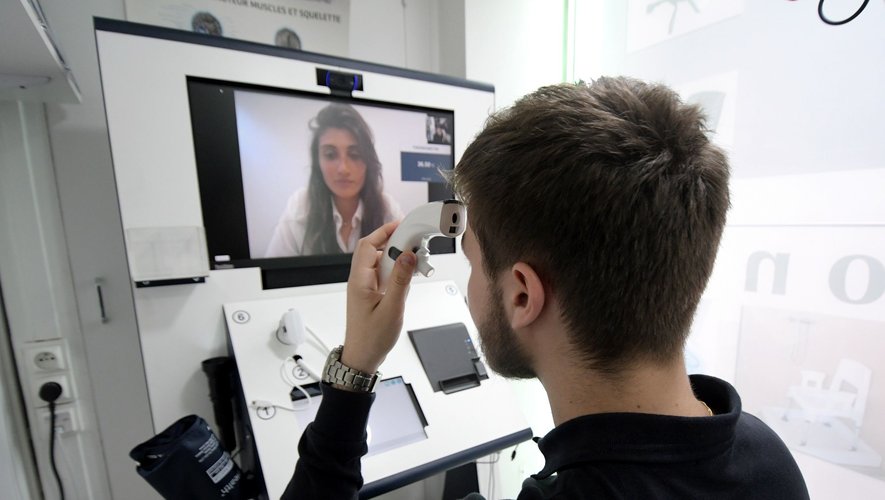While the number of work stoppages is exploding, teleconsultation – these cabins allowing patients to obtain medical advice by videoconference – worries general practitioners, who believe that these devices, without supervision, “discredit the profession” and cause flames the number of prescriptions.
You might have seen one when you went to your pharmacist: teleconsultation booths, these connected “boxes” allowing medical opinions to be delivered remotely, are flourishing in France and are of particular concern to general practitioners.
With the health crisis, the number of uses of these devices has exploded: the Ministry of Health recorded 80,000 teleconsultations in 2019, compared to nearly 9,400,000 in 2021. A boom such as several companies, such as the Australian clinic giant Ramsay, surfed on this wave by offering privileged access to these cabins: by subscribing to a subscription of 11.99 euros per month, each customer can teleconsult a doctor, available 24 hours a day, 7 days a week.
“Netflix of Health”
The announcement, which created controversy as the public authorities worried about the explosion of work stoppages, did not fail to enrage the unions, who see it as a form of “Netflix of health”. “Who can sincerely believe that you can be treated properly with a simple monthly subscription, without physical contact with a doctor?”, Gets carried away with La Dépêche du Midi the president of the French Union for free medicine (UFML) , Jerome Marty. “This type of subscription makes medicine a business and discredits the profession”, tackles the National Council of the Order of Physicians.
Even if it has sometimes been able to participate in the increase in work stoppages, Jérôme Marty believes that “teleconsultation can be effective if it is practiced by the doctors treating patients at the end of the line, or at least by professionals who follow these people. regularly”. “By definition, she carries an incomplete clinical examination, which therefore needs the contribution of a doctor”, continues the doctor. “It must be a comfort for the patient and the carer, but must be done between people who know each other, not by strangers”.

